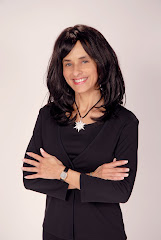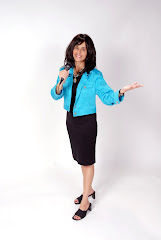
Do you feel embarrassed when you don’t know how to pronounce some one’s name? Are you frustrated that others mispronounce your name? Do you wonder why your overseas relatives pronounce their names differently from the way we do in the USA?
Well, a determined American woman, whose name changed after marriage, has actually developed an online tool that helps us pronounce thousands of names in more than 40 language groups. Included are Korean, Viet Namese, Farsi, Turkish, Arabic, and Samoan. http://www.howtosaythatname.com/ More than 75,000 submissions have contributed to her site which was created in 2006.
See a WSJ article here:
Exactly How Do You Pronounce Your Name Again, Miss....Miss?
By MARY PILON APRIL 15, 2009
Elizabeth Bojang wants to say your name right for posterity.
She always leaves her McLean, Va., home with a tape recorder. She asks people on the street, her dry cleaner and her colleagues at the insurance company where she works to record their first and last names for her Web site, www.howtosaythatname.com. So far in her quest, she has amassed more than 11,000 pronunciations ranging from "Aabha" to "Zwai."
Elizabeth Bojang, pronounced Bo-johng, created a Web site for unusual name pronunciations.
The idea came about after Ms. Bojang stopped using her maiden name, Godfrey, when she married Bala Musa Bojang, her Gambian husband. "I used to dread hearing it," because it was so often mispronounced, says Ms. Bojang. (The correct pronunciation is Bo-johng.)
The Internet has been a blessing for amateur and professional genealogists. But even when surname roots can be traced online, how last names are pronounced still causes confusion, especially in the cross-cultural mix of globalization. In fact, researchers say it is likely that many of our ancestors would be appalled at how their last names are pronounced today.
Suzanne Russo Adams, a genealogist for Ancestry.com, studied the last names of Italian immigrants and found that most who came to the U.S. in the early 1900s changed the pronunciation of their names after learning English and living in the country for a while. Some genealogists find that even parents and children pronounce their shared last name differently.
University of Florida linguistics professor Ben Hebblethwaite (the "th" isn't silent) noticed some of his students have dual pronunciations of their last names -- an anglicized pronunciation for school and a more traditional pronunciation at home.
Prof. Hebblethwaite says rhyme pattern in epic poems can offer clues for how names in the poem might have been spoken, giving modern-day users of a name a sense of how the pronunciation has evolved. For example, the rhyme pattern in medieval French epic "La Chanson de Roland" ("The Song of Roland") proves vital for linguists like Prof. Hebblethwaite.
In general, pronunciations get simpler over time: Consonants cluster, spellings are shortened, vowel pitches altered. Even with these historical signposts, there are few hard-and-fast rules about name pronunciation in English. "It's a mess," Prof. Hebblethewaite says.
Through research, Prof. Hebblethwaite has traced his own surname to Norwegians who invaded what is now Northern Britain as Vikings. "Heaven only knows how they pronounced it," he says.
Pinky Thakkar (silent "h"), an engineer from Mumbai, started the Web site www.pronouncenames.com after she moved to San Jose, Calif., and mispronounced the "J" in "San Jose," not giving it the "H" sound used in Spanish words. Properly pronouncing person and place names proved nearly impossible for Ms. Thakkar and her friends from abroad, she says.
More than 75,000 entries, including 38,000 audio files, have been submitted to Ms. Thakkar's Web site since it launched in 2006. She manages the site with six other volunteers.
Ms. Thakkar is now working on an algorithm that would allow site users to record a name as they heard it and then have the site churn out a proper spelling based on the audio submission. She also is looking to expand the site's ability to provide audio pronunciations based on a user's typed-in guess. For example, if a user heard the Indian surname "Sridharan," but had no idea how to pronounce it, he or she could enter a guess such as "shree the run" and the accurate spelling would appear.
Pronouncenames.com's followers include teachers, graduation speakers, sports announcers and foreigners trying to improve their English.
The new technology could help people such as Vathanyu Chaipattanawanich. The 19-year-old mechanical-engineering student at Lehigh University in Pennsylvania is regularly greeted by flustered faces when he swipes his credit card, fills out forms and wins awards. He says that although his 25-letter Thai name has been an ice-breaker for years, "everyone calls me 'Tab.'"
Mr. Chaipattanawanich joined the 600-plus member Facebook group, "Nobody Can Pronounce My Last Name," one of several on the site organized around that theme.
Both Ms. Bojang and Ms. Thakkar are a long way from documenting the six million last names recorded in a 2007 U.S. Census Bureau study. But they are gratified that their sites might be helping befuddled speakers.
In a few years, Ms. Bojang's 3-year-old daughter Nyima and 7-month-old son Kebba will head to grade school. Their names are pronounced "knee-ma" and "kay-bah." Ms. Bojang, a former teacher, knows the headaches of a class roster, but is optimistic.
"Hopefully," she says, "the Web site will help them."
Printed in The Wall Street Journal, page A11
http://online.wsj.com/article/SB123930927836606215.html






.jpg)
.jpg)




No comments:
Post a Comment